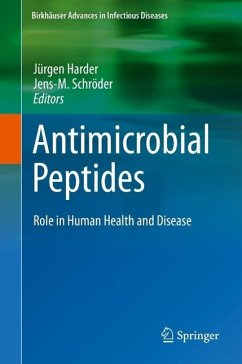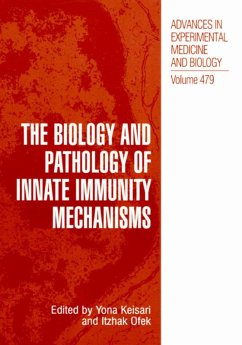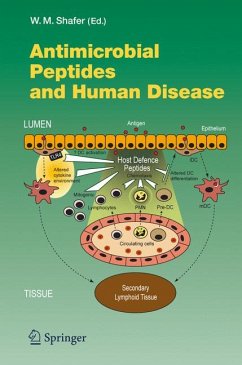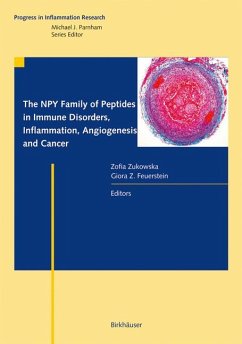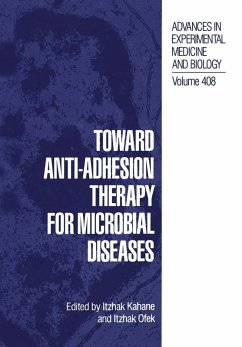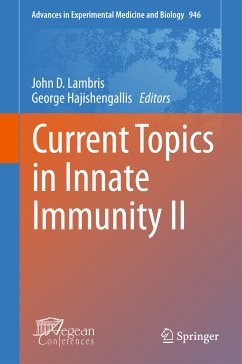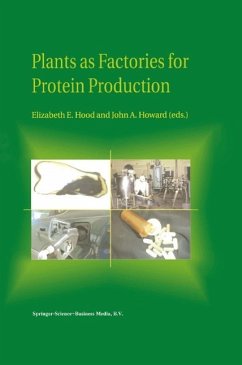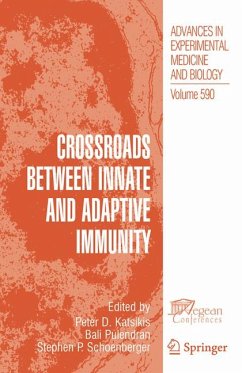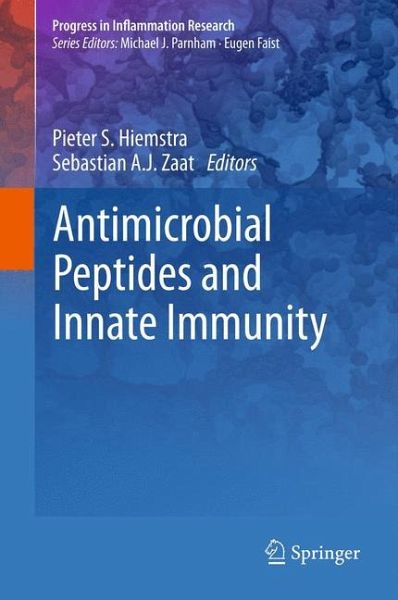
Antimicrobial Peptides and Innate Immunity (eBook, PDF)
Versandkostenfrei!
Sofort per Download lieferbar
112,95 €
inkl. MwSt.
Weitere Ausgaben:

PAYBACK Punkte
56 °P sammeln!
Antimicrobial peptides have been the subject of intense research in the past decades, and are now considered as an essential part of the defense system in bacteria, plants, animals and humans. his book provides an update on these effector molecules of the innate immune system both for researchers who are already actively involved in the area, and for those with a general interest in the topic.The book starts with an overview of the evolution of cysteine-containing antimicrobial peptides (including defensins), and the role of these peptides in host defense in plants and micro-organisms. The rea...
Antimicrobial peptides have been the subject of intense research in the past decades, and are now considered as an essential part of the defense system in bacteria, plants, animals and humans. his book provides an update on these effector molecules of the innate immune system both for researchers who are already actively involved in the area, and for those with a general interest in the topic.
The book starts with an overview of the evolution of cysteine-containing antimicrobial peptides (including defensins), and the role of these peptides in host defense in plants and micro-organisms. The realization that antimicrobial peptides also display functions distinct from their direct antimicrobial action is the focus of the next chapters, and puts these peptides center stage in immunity and wound repair. Further chapters discuss the role of antimicrobial peptides in disease, by providing an overview of mechanisms in bacterial resistance to antimicrobial peptides and a discussion of their role in inflammatory bowel disease, cystic fibrosis lung disease and chronic obstructive pulmonary disease. Finally, the book shows how knowledge of the function of antimicrobial peptides and their regulation can be used to design new therapies for inflammatory and infectious disorders. This is a very important area of research because of the increase in resistance of micro-organisms to conventional antibiotics. Therefore the use of synthetic or recombinant peptides, or agents that stimulate the endogenous production of antimicrobial peptides, provides an attractive alternative for conventional antibiotics.
The book starts with an overview of the evolution of cysteine-containing antimicrobial peptides (including defensins), and the role of these peptides in host defense in plants and micro-organisms. The realization that antimicrobial peptides also display functions distinct from their direct antimicrobial action is the focus of the next chapters, and puts these peptides center stage in immunity and wound repair. Further chapters discuss the role of antimicrobial peptides in disease, by providing an overview of mechanisms in bacterial resistance to antimicrobial peptides and a discussion of their role in inflammatory bowel disease, cystic fibrosis lung disease and chronic obstructive pulmonary disease. Finally, the book shows how knowledge of the function of antimicrobial peptides and their regulation can be used to design new therapies for inflammatory and infectious disorders. This is a very important area of research because of the increase in resistance of micro-organisms to conventional antibiotics. Therefore the use of synthetic or recombinant peptides, or agents that stimulate the endogenous production of antimicrobial peptides, provides an attractive alternative for conventional antibiotics.
Dieser Download kann aus rechtlichen Gründen nur mit Rechnungsadresse in A, B, BG, CY, CZ, D, DK, EW, E, FIN, F, GR, HR, H, IRL, I, LT, L, LR, M, NL, PL, P, R, S, SLO, SK ausgeliefert werden.




